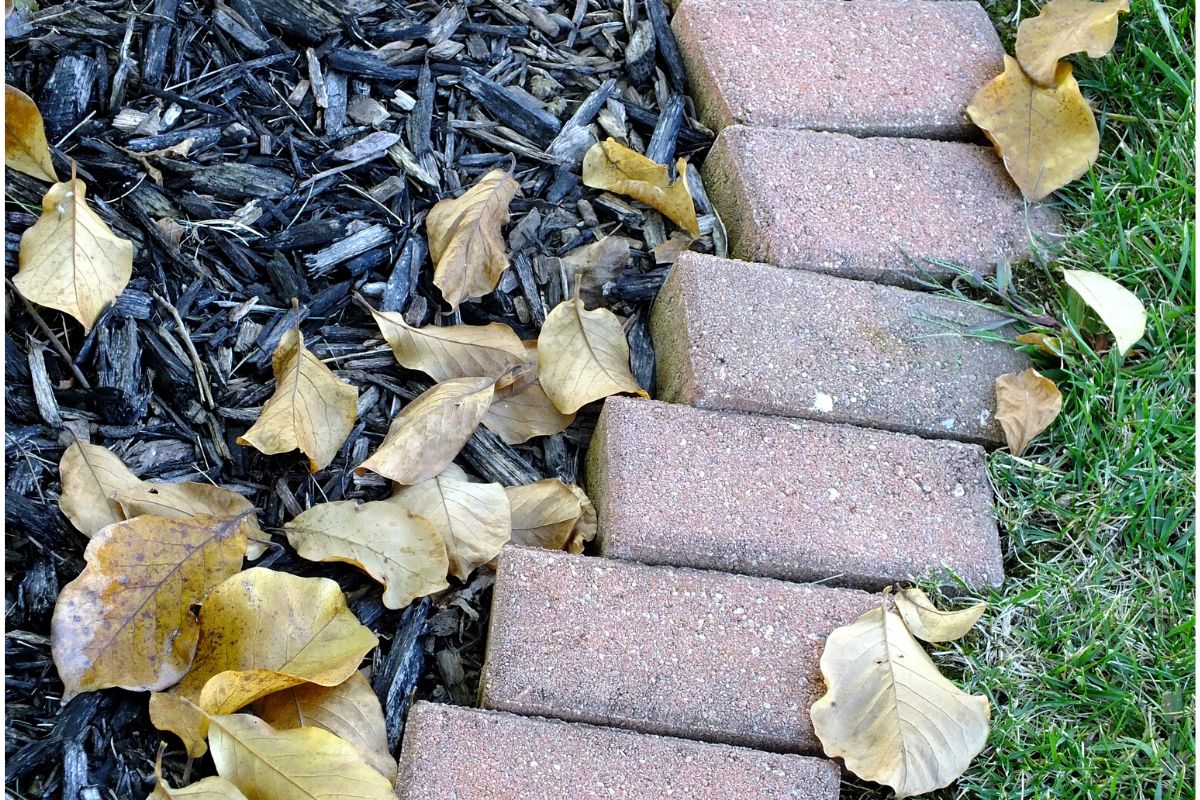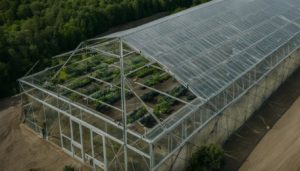Gardening can be an incredibly rewarding hobby, but it’s also filled with lots of questions.
Key among them is “What is the difference between mulch and compost?”
While they both have their place in a garden, there are some distinct differences that need to be understood if you want your plants to thrive.
In this article, I’ll dive into what makes each one unique so you can make sure your garden gets just what it needs!
Mulching
They say ‘A stitch in time saves nine’ and this proverb is also true when it comes to adding mulch.
Mulching involves spreading a layer of organic material such as bark or straw over the surface of soil, which helps retain moisture and prevents weeds from sprouting.
It’s an essential maintenance task for gardeners since it can extend the life of plants by providing insulation against extreme temperatures.
As if that wasn’t enough, mulch also adds valuable nutrients to the soil without having to buy fertilizer.
How To Mulch
Mulching is a DIY job that involves spreading organic material like wood chips or shredded leaves around the base of plants to help retain moisture in the soil and keep weeds away.
When done correctly, adding mulch is a simple way to give your garden some love!
Types
There are many types of mulch to choose from; each type has its own unique benefits that make it the perfect choice for certain circumstances.
Bark Chips
Bark chips provide insulation against temperature extremes while also aiding in water retention.
Rubber Mulch
Rubber mulch provides excellent weed resistance and is also highly resistant to fading due to UV rays.
Straw
Straw helps keep soil moist longer than other materials while adding nutrients back into the ground as it breaks down over time.
Pine Needles
Pine needles have natural anti-fungal properties and offer an attractive appearance with low maintenance requirements.
Stone Chips
Lastly, stone chips give gardens a neat, manicured look without requiring much effort in upkeep or maintenance.
All these types of mulch serve the same purpose – helping you create beautiful outdoor spaces that will thrive in any climate!
Composting
Composting is the natural process of breaking down organic materials, such as food scraps and yard waste, into a nutrient-rich soil amendment.
As for non-organic compost, it can also be created with vermicomposting, which uses worms to break down the material more quickly.
Composting basics include turning and aerating the pile regularly to ensure it breaks down efficiently.
Composting is an easy way to reduce household and garden waste while providing beneficial nutrients for plants in your backyard or garden.
How To Compost
Composting requires purchasing materials from a nursery or store.
It can involve:
- Sheet mulching with layers of cardboard and manure, or;
- Using worms for vermicomposting.
Both composting methods are beneficial for aerating soils so oxygen reaches plant roots, which encourages growth.
Let me tell you about the different types of compost.
Types
There are three types of composting- aerobic, anaerobic and vermicompost.
Aerobic
Aerobic composting is a type of composting that involves decomposing organic materials using naturally occurring microbes requiring oxygen.
The by-product release in the process is carbon dioxide.
Anaerobic
Unlike aerobic composting, the microbes utilized in anaerobic composting do not require oxygen.
Vermicompost
This type of composting relies on fungi and microorganisms – earthworms – to convert organic waste into fertilizer through the decomposition process.
Conclusion
In conclusion, mulch and compost are both essential elements of a healthy garden.
Mulch can help with aeration benefits, water retention and weed control while compost helps provide plants with vital nutrition. Both are essential for maintaining healthy soil structure too!
They come with their own methods of preparation, benefits and drawbacks, so it’s important to understand the differences between them in order to make an informed decision for your garden.
Both mulch and compost can be expensive, but the environmental benefits can outweigh the cost if used correctly.
But if spending money on either product isn’t something you’re up for, there are alternatives such as using newspapers or grass clippings instead. Why not give one of those options a try?
With all this knowledge in hand, you’ll be able to pick out the perfect mulch or compost for your green oasis!
Frequently Asked Questions
Are There Any Environmental Benefits To Using Mulch Or Compost?
Using mulch or compost can be a great way to give your garden an environmental boost!
Both of these natural fertilizers provide beneficial microorganisms, which help improve soil fertility.
Mulch helps retain water in the ground and keeps it from evaporating too quickly, while compost adds vital nutrients that plants need for growth.
And both are effective at preventing pest infestations – so you don’t have to worry about using toxic chemicals!
All-in-all, mulching and composting offer plenty of benefits when it comes to keeping your garden healthy and green.
How Often Should Mulch And Compost Be Replenished?
Replenishing mulch and compost is an important part of keeping your garden looking its best.
How often you need to replenish depends on the type of material used – organic materials require more frequent top-ups than inorganic ones. Generally speaking, it’s recommended that both be replaced every two years or so to keep them working their magic!
Are There Any Safety Precautions To Take When Working With Mulch Or Compost?
To ensure safety when mulching or composting, it is essential that you wear gloves, long sleeves, closed toe shoes and other protective gear while working with these items as they may contain bacteria or parasites that are hazardous for humans if ingested.
Besides wearing proper protection, it is also important to replenish your mulch and compost every few weeks so that their benefits of pest control and plant health remain effective.
What Are The Alternatives To Mulch And Compost?
If you’re looking for alternatives to mulch and compost, there are plenty of options.
- Vermicomposting – a great way to create nutrient-rich soil from organic waste.
- Hay bales – used as a soil conditioning material in gardens or landscapes.
- Leaf litter – good for covering the ground around plants, helping prevent weeds and retain moisture.
- Cover crops – provide excellent protection against erosion and improve the fertility of your soil over time.
Whether you need something for long term use or just a quick fix, there’s sure to be an alternative that fits your needs!
Photo by LouAnn Clark.


